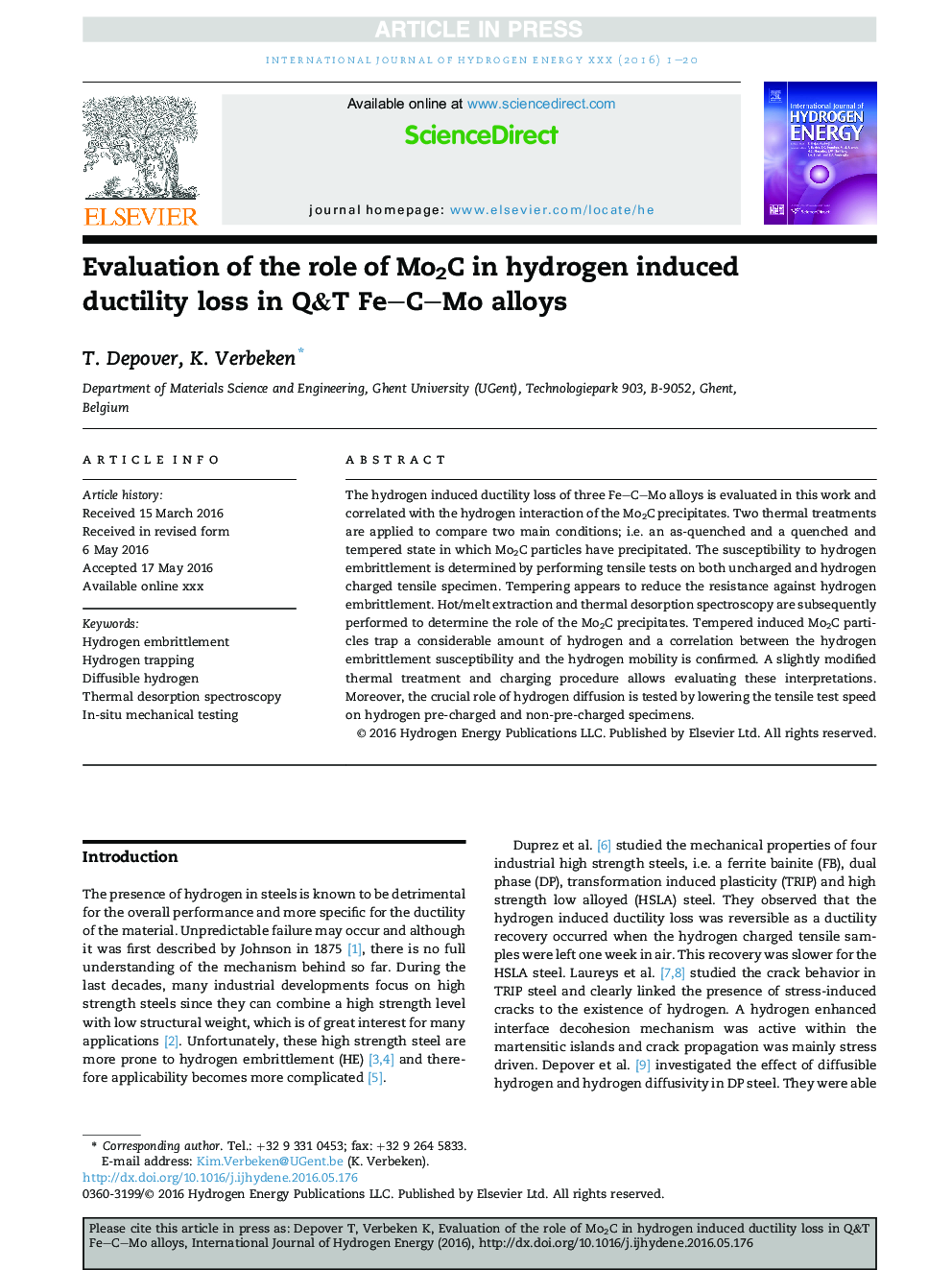| Article ID | Journal | Published Year | Pages | File Type |
|---|---|---|---|---|
| 7709899 | International Journal of Hydrogen Energy | 2016 | 20 Pages |
Abstract
The hydrogen induced ductility loss of three FeCMo alloys is evaluated in this work and correlated with the hydrogen interaction of the Mo2C precipitates. Two thermal treatments are applied to compare two main conditions; i.e. an as-quenched and a quenched and tempered state in which Mo2C particles have precipitated. The susceptibility to hydrogen embrittlement is determined by performing tensile tests on both uncharged and hydrogen charged tensile specimen. Tempering appears to reduce the resistance against hydrogen embrittlement. Hot/melt extraction and thermal desorption spectroscopy are subsequently performed to determine the role of the Mo2C precipitates. Tempered induced Mo2C particles trap a considerable amount of hydrogen and a correlation between the hydrogen embrittlement susceptibility and the hydrogen mobility is confirmed. A slightly modified thermal treatment and charging procedure allows evaluating these interpretations. Moreover, the crucial role of hydrogen diffusion is tested by lowering the tensile test speed on hydrogen pre-charged and non-pre-charged specimens.
Related Topics
Physical Sciences and Engineering
Chemistry
Electrochemistry
Authors
T. Depover, K. Verbeken,
